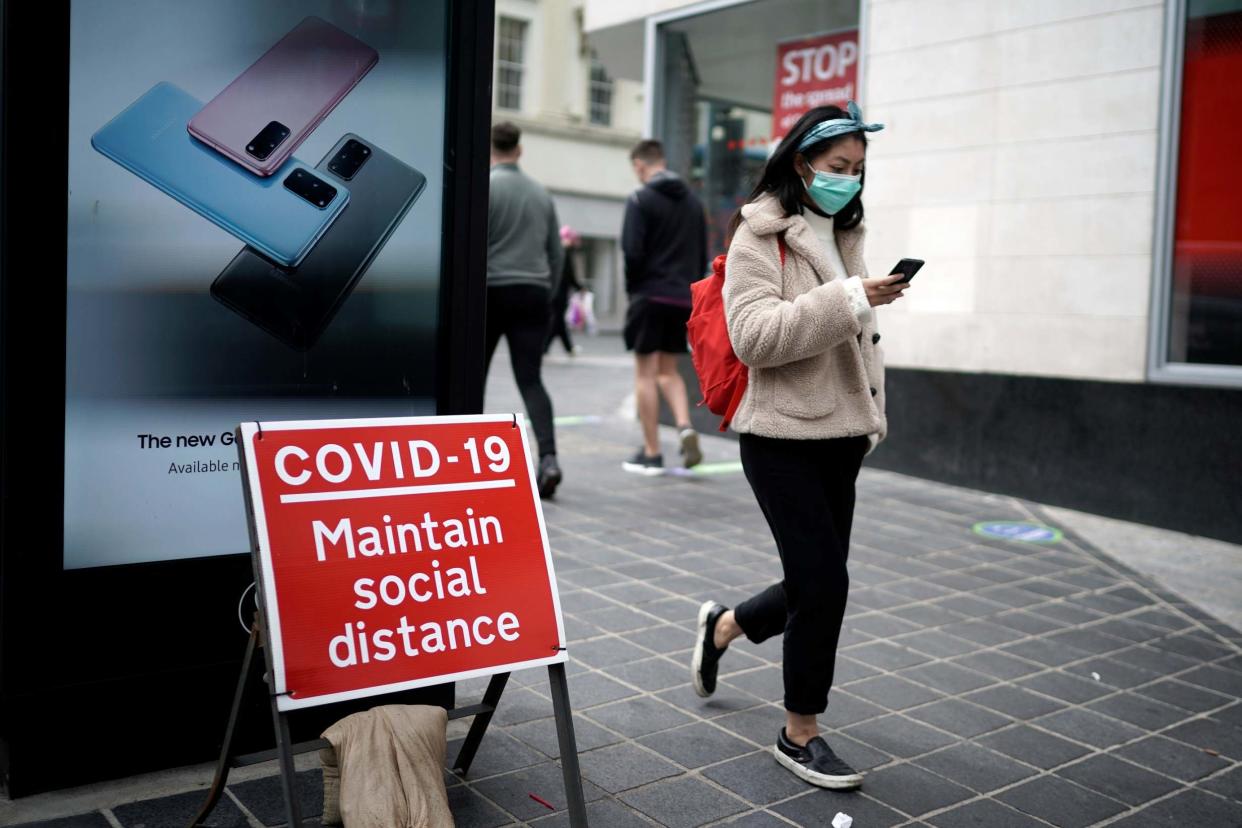London coronavirus cases hit new high but rise in hospitalisations far lower than peak

More than 10,000 Londoners have been revealed in the past week to have tested positive for Covid — but the number being admitted to hospital or dying is barely a fraction of the first wave.
Figures published on the Government’s daily dashboard for the past seven days show that a total of 10,013 people in the capital had been diagnosed with coronavirus.
There were 29 deaths declared over the same period — almost 50 times lower than the 1,450 seen in London in the worst week in April.
The number being admitted to London hospitals is taking about a fortnight to double, increasing from 233 a week at the start of October to 464 in the most recent seven days.
Doctors believe that improvements in intensive care have reduced the death toll — with nationwide mortality rates in those admitted to an ICU falling from 40 per cent between March and August to 15 per cent since the start of September. Dr Simon Ashworth, an intensive care doctor at St Mary’s hospital in Paddington, said “subjectively it feels like a different disease now” and patients were coming off ventilators faster.
Professor Rupert Pearse, an intensive care doctor at the Royal London hospital, in Whitechapel, said that the “hands, face, space” social-distancing guidance had “slowed the flood wave” and allowed routine healthcare to continue.
He tweeted: “We can now see that ICU admissions with Covid-19 are increasing at a much slower rate than March. So we are seeing a ‘slow burn’ rather than a ‘second wave’. This could make the vital difference to how well the NHS copes through the winter.”
An Evening Standard analysis of NHS data found weekly Covid hospital admissions in London are rising — but remain far short of the first wave, when 883 patients were admitted in the single worst day of the pandemic to date, on March 30.
The 10,013 Londoners announced in the past week to have tested positive with Covid is up from 7,735 cases in the previous seven days.
At the peak of the first wave, there were 6,131 positive tests in the first week in April — but the numbers cannot be directly compared due to the dramatic change in the availability of testing.
Because mass population testing was not available in March and April, it meant that thousands of Londoners would have had the virus without being formally diagnosed.
Separate data from official weekly ICNARC (Intensive Care National Audit and Research Centre) study of Covid patients in intensive care in England, Wales and Northern Ireland shows that mortality rates since the start of September are markedly lower than the first peak. This is believed to be due to a combination of better treatments — steroids such as dexamethasone have been found to increase survival by reducing lung inflammation — and better techniques, such as administering oxygen earlier.
Of the 1,233 patients admitted to ICU across the three nations since September 1, a total of 183 have died — a mortality rate of almost 15 per cent.
By comparison, of the 10,837 patients admitted to ICU up to August 31, 4,283 have died — a death rate of almost 40 per cent. The latest figures are incomplete, as 590 patients were still in hospital and a number of these are likely to die. But experts believe people are more likely to survive Covid than before.
The latest ICNARC report showed that of the 1,233 patients admitted to ICU between September 1 and October 15, a total of 161 have been in London. The biggest number has been in the North West — a total of 359 — followed by 279 in the North East and Yorkshire.
In the period up to August 31, London had the greatest number of ICU admissions — a total of 3,091. A total of 6,312 Londoners have died within 28 days of a positive Covid test since the start of the pandemic.
Read more
Funding boost in Tier 3 lockdown talks amid hopes for Covid jabs-LIVE
Labour MP Yasmin Qureshi in hospital with coronavirus
North is ‘running out of hospital beds’ as Covid surge takes hold
Hospitality in crisis as Tier 2 projected to cost London £10 billion
Virus rules still forcing pregnant women to have hospital scans alone


